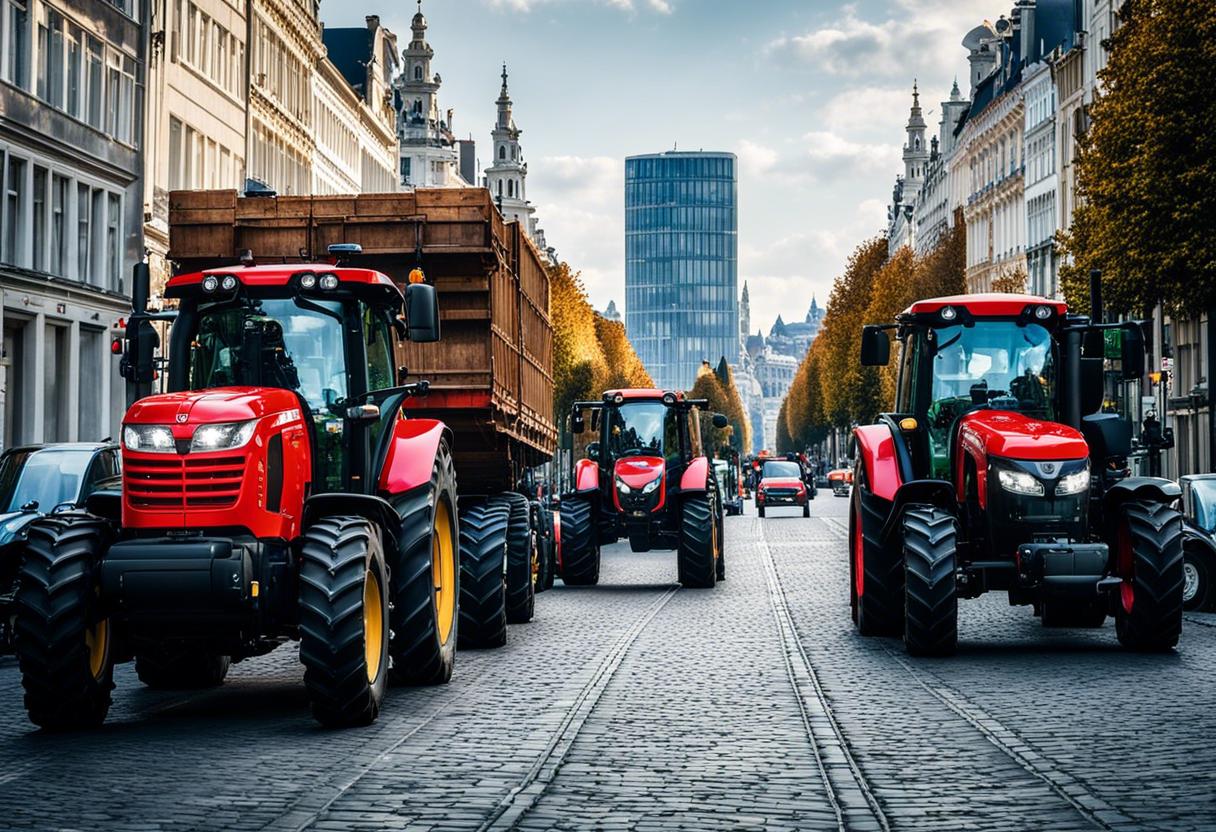Farmers began to assemble in Brussels from the break of dawn on Tuesday, impeding the path towards the headquarters of the European Council and European Commission with their tractors. Amidst the crowd of agitated farmers were incendiary acts of burning tyres and wooden pallets, causing a dense cloud of smoke to billow above the Belgian capital. Agitators at the frontlines of the barricades pelted eggs at the riot police in defiance.
While the demonstration was more controlled and had a smaller turnout than previous protests, it still focused primarily on climate change policies and the mounting bureaucratic pressure that farmers assert they have to endure. Corresponding with an agricultural ministers’ meeting, the recent protest touched upon market fluctuations in the sector and the European Union (EU)’s established Common Agricultural Policy (CAP).
To brace for the impending tractor fleet, law enforcement arranged barbed wire barricades around EU-based offices located in Brussels’ core on Monday. Unfazed, the farmers, upon arrival, unloaded a heap of manure before a blockade and scattered straw along the road. A minority, predominantly younger protestors, set off fireworks and bangers, even resorting to tossing eggs at the police officers, who retaliated with a water cannon. A few protestors prudently brought along earplugs to dampen the deafening sound of tractor horns.
Having made a “real impact” via farmer protests throughout Europe, the vice president of the Belgian young farmers’ federation, Corentin Jaques, (26), stated, “I operate a farm in southern Belgium, where we churn out milk, beef, and a small amount of cereals,” and added, “The lack of a mid to long term vision due to volatile pricing scares me a bit.”
In the lead up to the European elections this June, attempts to placate disgruntled farmers have been made by the leaders of numerous EU nations, the European Parliament’s centre-right consortium that encompasses Fine Gael, and the European Commission. The Nature Restoration Law, a notable proposed legislation introducing initiatives for land and sea nature revival, is under threat of becoming the latest casualty of this policy change.
The draft law, which narrowly made it past the European Parliament, simply “doesn’t serve Belgian farmers,” according to Stijn Zelderloo, a farmer from Dilbeek, a locality in Flanders not far from Brussels.
According to a farmer representative, the existing tangle of regulations and policies frequently proved complex and confusing to adhere to. Zelderloo expressed uncertainty regarding the confrontational tactics employed in the latest demonstrations. He questioned the necessity of resorting to destructive means such as setting Brussels ablaze to communicate one’s views. He believed that when violence and fire outgun the message, it may get obscured.
Ségolène Plomteux, a 28-year-old policy consultant for the Walloon Federation of Agriculture, conveyed that farmers not only in Belgium but all over were at the end of their tether. The Green New Deal, which is the European Commission’s primary platform for environmental strategies, was devised in 2019, Plomteux pointed out. However, she believes that the circumstances have so dramatically shifted since it’s inception, it’s hard applying that same measure now. It’s unacceptable, she emphasised, to persist with the status quo.

